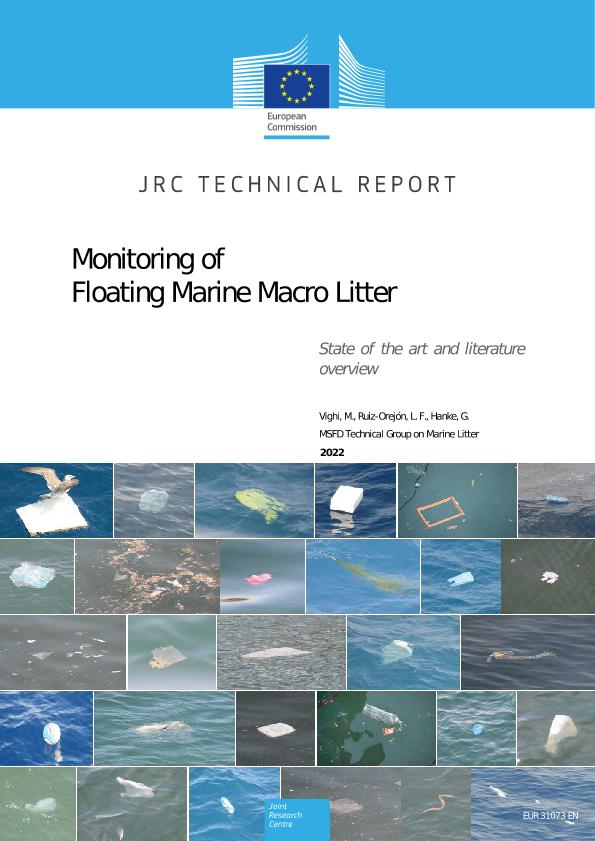Monitoring of Floating Marine Macro Litter
State of the art and literature overview
Marine litter is a recognised and major aspect of marine pollution, posing a direct threat to marine organisms and raising a global concern for its environmental and economic implications. Floating Marine Macro Litter (FMML) is the portion of marine litter comprising items larger than 2.5 cm that float in the surface layers of the water column and is considered a pertinent direct indicator of the pressure exerted by marine litter on marine ecosystems. Indeed, being the mobile fraction of marine litter, FMML can provide indications of the main sources, sinks and pathways of litter in the marine environment, and allows the assessment of the effects of waste prevention measures. The monitoring and assessing of FMML is considered by the Marine Strategy Framework Directive (MSFD) and regional frameworks, and by the UN. |
To this end, several methodologies have been proposed and tested across the globe for monitoring FMML. However, to guarantee that data collected within the monitoring programmes are representative and consistent, and to allow the assessment of trends and thus the evaluation of the effectiveness of mitigation measures, commonly agreed protocols for data collection and management need to be implemented. The present report has been developed by the MSFD Technical Group on Marine Litter (TG ML) to update the FMML monitoring guidance and support EU Member States (MS) in the implementation of monitoring programmes.
This technical report provides a summary of options for FMML monitoring retrieved from a detailed review of scientific literature and research projects developed for this purpose. It details the scientific and technical background that was used for specific guidelines for FMML monitoring. |
